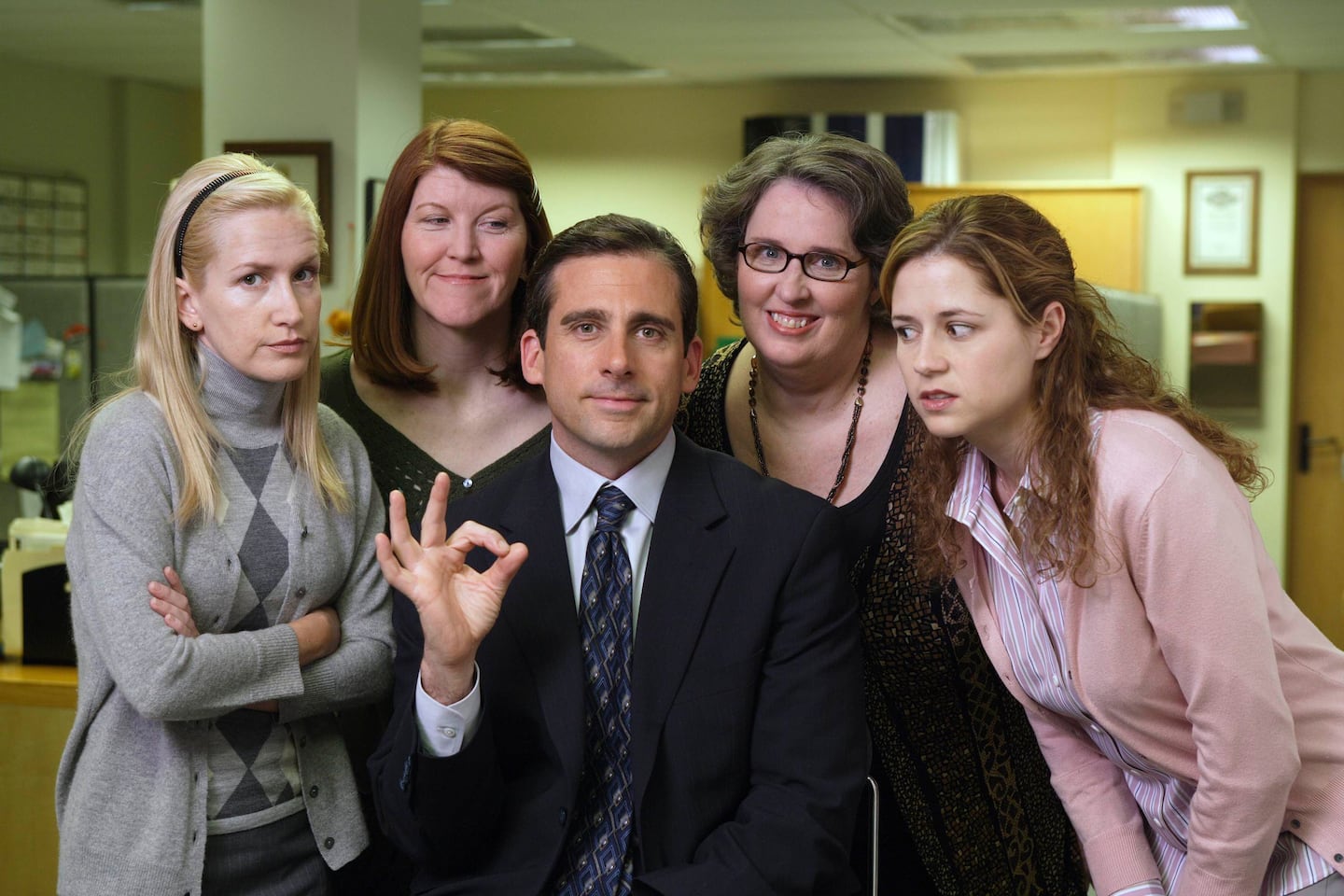Getting lost in ‘The Office’ helped with isolation — and made us miss our own workplaces

That an office sitcom has resonated during a year when millions of people abruptly lost access to their workplaces is partly because the show’s appeal was never the inner workings of Dunder Mifflin, the fictional paper company where the comedy was set.
Early in its nine seasons, “The Office” was rooted in relatable workplace situations: diversity sensitivity and sexual harassment training, health coverage angst. But the show transformed into a cultural phenomenon — spawning a universe of memes — because beneath its sendup of workplace life (the pathos of the party-planning committee!), the show is really about people. That is, the hours upon hours spent with co-workers, the life events experienced with them, and the affections and aggravations born of it all.
The resonance of relationships is not just between sitcom and audience but also viewers and their colleagues. The quality of the writing, the acting and the antics of the Dunder Mifflin crew stitched the sometimes-painful humor into an addictive whole.
If, as one critic observed, the show “flipped the TV-as-a-distraction-from-real-life paradigm by setting the action in precisely the type of workplace many people long to escape,” covid-19 has flipped the paradigm back: allowing viewers to blunt their physical isolation by connecting with the familiar workplace setting from which many are distanced.
At a time when the coronavirus has curtailed access to typical options for relaxing (gym workouts, travel), comfort TV is a form of self-care. A study in four Southeast Asian countries during covid lockdowns this spring found that 25 percent of respondents binge-watched television to relieve stress, while nearly 16 percent did so to overcome loneliness. And as one psychologist told The Post’s Magazine in June: “Programming that engages people in such mixed emotional experiences allows viewers to navigate complicated, blended feelings vicariously through the characters from the safe distance of fiction.”
Translation: Losing oneself in Dunder Mifflin is a way of coping with pandemic isolation.
“TV is an incredibly sentimental medium,” John Krasinski, who played the everyman character Jim Halpert, said while discussing the series’ conclusion in 2013. “You have a lot of people not only watching but, like weirdly, experiencing this with you.” Mass viewing, an echo of a period when everyone had the same (few) TV options, also threads connections at a time of physical separation.
Although some critics, including at The Post, have long advocated moving on from go-to shows to more current shows, audiences have resisted: “The Office” has consistently ranked among Netflix’s most-viewed U.S. programs. NBCUniversal agreed to pay $500 million for exclusive streaming rights in hopes of drawing those viewers to its platform.
Whether or not massive audiences follow “The Office” to Peacock — which is touting previously unaired footage to pique interest — the show has provided more than laughs this chaotic year. These familiar characters are reliable. That’s comforting at a time when so little feels predictable.
The power of connections, even on screens, hit home recently when colleagues and I, waiting for a Zoom meeting to start, discussed a fellow editor’s Instagram story about watching “Dinner Party,” a brilliant, dark episode from season four. Mere mention of “The Office” ignited conversation: Would a network greenlight the show today, we wondered. Had its recurring joke, #ThatsWhatSheSaid, become so ubiquitous that the double entendre no longer pushed boundaries?
The exchange felt like more than enthusiasm for a beloved sitcom. Had our meeting been in The Post’s newsroom, our office, my colleagues and I might have paused in various activities, gathered and then dispersed in different directions. Over nine months of remote work, however, virtual meetings have tethered us to each other and given shared experiences greater weight. Laughing or cringing at the show, I never expected “The Office” to make me miss my office.
The series finale, in a nod to the show’s conceit as a faux documentary, concludes with the lines, “There’s a lot of beauty in ordinary things. Isn’t that kind of the point?” Arguably, the sentiment applies to rabid devotion to a fictional workplace sitcom, and bonding with real-life colleagues over it.
Read more:






